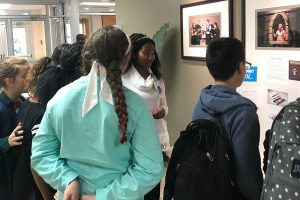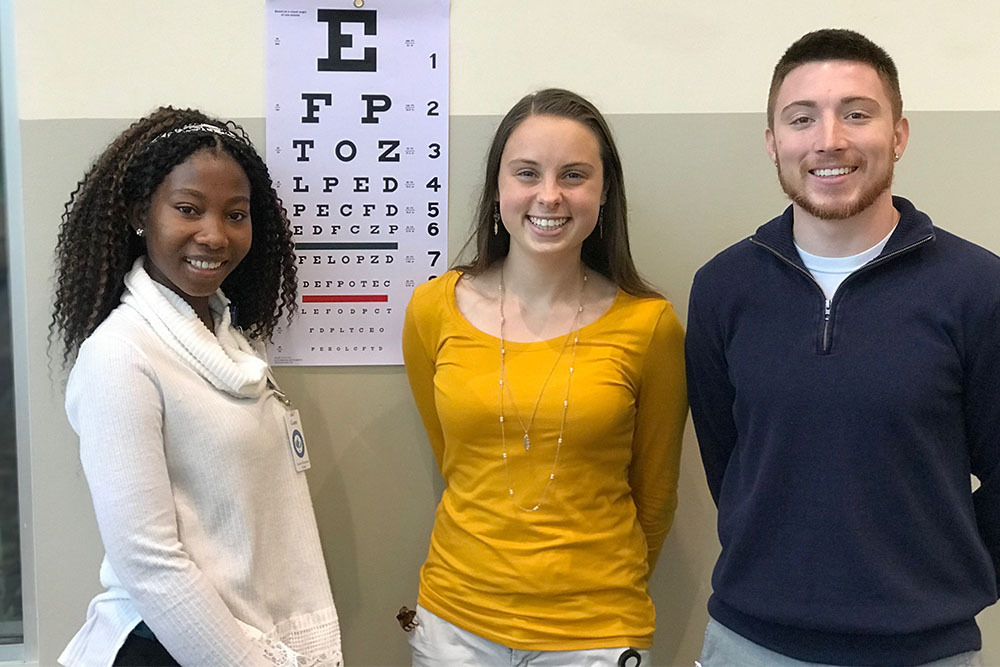Five groups of Eastern Mennonite University nursing students implemented community health projects that reached hundreds this fall.
For their community health nursing course’s semester-long “community project” with a local agency, the students defined and described a patient population, conducted a needs assessment in their project area, formulated an intervention plan, and, once the plan was implemented, evaluated the intervention.
The five groups in the course this fall focused on a variety of public health issues in as many settings – and “directly touched the lives of over 300 individuals in our community ranging in age from five to 80-plus years old,” said Professor Kate Clark:
- At Gemeinschaft home, a group provided smoking cessation and heart health education to men recently released from prison, conducting a group education program that included interactive teaching sessions;
- With teenagers at the local Boys and Girls Club, a group created and played a healthy choices game and completed several cooking projects to make healthy snacks from commonly available, cheap foods;
- At Park Place, a residential home for adults with mental illness, a group provided teaching sessions about healthy eating, plus worked to make small health improvements in the residents’ favorite foods;
- At the Virginia Mennonite Retirement Community (VMRC), a group surveyed residents to identify gaps in the communication and marketing practices of VMRC’s Farm at Willow Run, which provides VMRC dining services with fresh produce; and
- At Eastern Mennonite School (EMS), a group conducted vision screenings, plus organized a health fair on various topics.
For their project at EMS, senior nursing majors Louisa Quaynor, Connor Faint and Laurie Serrell screened kindergarten, third, seventh and tenth graders, and identified students in need of vision care.
Working across grade levels developed the group’s communication skills, Serrell said, as “kindergartners definitely require a different approach than tenth graders.”

The group also organized a health fair about influenza prevention and the health hazards of electronic cigarette usage among teens, in particular JUULing. JUUL is a brand name of an inconspicuous but powerful e-cigarette that is shaped like a USB flash drive and contains “extremely high levels of nicotine,” according to the U.S. Centers for Disease Control and Prevention. Available in “kid-friendly” flavors, JUUL use by students in schools has been “widely reported.”
The national statistics about JUUL use surprised the group: Approximately one in ten youth aged 15-17 have used a JUUL, according to the Truth Initiative.
As a result of the health fair, Quaynor said, high school students at EMS “now know the real effects of JUULing and will hopefully avoid it.”
